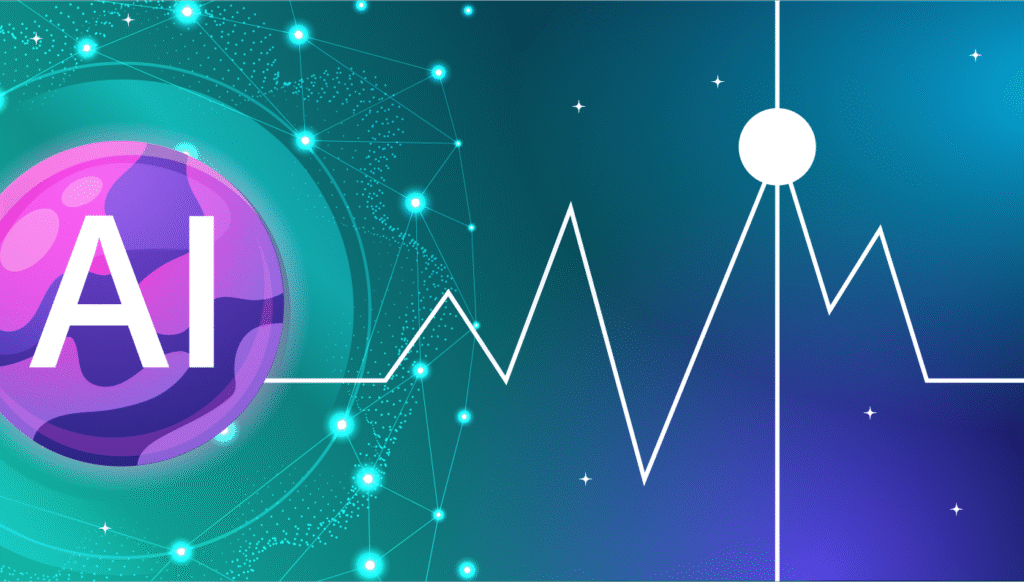The Pros and Cons of Using AI in Stocks Trading

The stock market holds the potential for both exceptional gains and substantial losses. While a great investment opportunity, the unpredictable nature of stock trading demands a strategic approach to safeguard your portfolio and optimize returns. In this era of technological innovation, artificial intelligence (AI) has emerged as a potential game-changer in the stock trading landscape.
In early 2023, the value of the global domestic equity market passed the $100 trillion mark. This massive growth in market capitalization presents a lucrative opportunity for investors to leverage AI in stock trading. This article digs into the benefits of integrating AI into stock trading, while also exploring the limitations of relying solely on AI algorithms to predict market outcomes accurately.
The Technological Edge Provided by AI Stocks Trading
AI is revolutionizing the efficiency and speed of stock trading. With unparalleled computing power, and huge datasets it enables smart, insightful decision-making, based on a wealth of up-to-the-minute data. Artificial intelligence transforms stock trading by allowing traders to exploit profitable opportunities while mitigating risks in real time, a crucial advantage in the fast-paced world of stock markets. By continuously analyzing stock prices and processing immense amounts of unstructured data, AI equips both retail and institutional investors to take advantage of complex trading opportunities, with informed buy and sell decisions.

How Stocks Traders Are Integrating AI
The integration of AI in the stock market is a genuine game-changer. This innovation opens the door for investors to access a vast amount of financial information.
AI can aggregate and organize diverse data sources, including social media sentiment, historical price trends, and economic news, for a comprehensive view of the financial landscape.
Advanced AI machine learning algorithms can be trained using historical data to identify significant patterns in stock fluctuation over the short and long term and use them as a basis to predict future market trends. These trained AI models can be used to analyze real-time or historical data and recommend when to buy or sell, based on market trends and risk tolerance. They can then execute the recommendations reliably, and rapidly.

24/7 performance monitoring enables the AI to pinpoint and correct algorithmic mistakes and adapt models to changing market conditions for ever-greater accuracy and efficiency.
However, it’s important to recognize that AI stock trading systems have their limitations. They provide valuable opportunities but may also yield inaccurate predictions due to unpredictable market fluctuations and discrepancies in data accuracy.
Unveiling Actionable Insights with AI Stock Trading Signals
One of the significant benefits AI brings to stock trading is the ability to generate valuable trading signals. These signals are derived from extensive big data analyses performed by AI systems on specific stocks, resulting in accurate recommendations to achieve profitable trades. AI algorithms examine various indicators, including price action, currency valuation, news analysis, and social media sentiment, to provide valuable insights for traders.

AI Stock Trading Pros
The many advantages of using AI in stocks trading include:
Reduced Costs
By automating repetitive tasks, AI reduces operational costs, making it a cost-effective solution for long-term investments.
Heightened efficiency
AI-powered algorithms automate research processes and data-driven strategies, saving time and enhancing the accuracy of trade executions. They can also manage and monitor diverse tradable assets across different markets simultaneously.
Effective Pattern Identification
Looking at financial news and social media, AI employs sentiment analysis and textual examination to identify distinctive market patterns and fluctuations, aiding in informed stock trading decision-making.
Eliminating human weakness
Even the best traders are only human, facing challenges related to emotional responses, and the ability to monitor multiple markets effectively. In contrast, automation through AI provides an edge by eliminating emotional biases, ensuring adherence to rules, and offering consistent trading abilities.
Exceptional Risk Assessment
When it comes to evaluating exposure, AI can process massive amounts of data and analyze it to assess potential risks, with unparalleled accuracy.
AI Stock Trading Cons
While AI in stock trading holds immense promise, it’s vital to acknowledge its limitations. There is no substitute for human judgment, particularly in highly volatile, unpredictable markets. Also, AI trading systems are only as good as the data they are trained on, so if the information is unreliable, the system will be negatively affected.
Here at AlgosOne.ai we are exploiting the amazing profit potential of AI trading with our algorithmic system that trades all types of assets, including stocks, commodities, bonds, crypto, indices, and forex. The system is based on deep neural networking technology and proprietary generative AI models, similar to Llama 2 and GPT-4. Users just sign up, deposit funds, and let the system get to work on their behalf, with no preprogramming required.

Our system is able to make lightning-fast, informed market decisions since it is trained on a huge collection of data from a vast array of sources, including social media, global news, and corporate data, to name a few. The system’s machine-learning capabilities mean that it improves performance with every new piece of data it processes and every trade it executes.
The advent of artificial intelligence in stock trading marks a significant technological shift, offering unprecedented accuracy, efficiency, and cost savings compared to traditional methods. To find out more about stock trading, artificial intelligence, automated investing, and a wide choice of other topics, check out the AlgosOne blog today.




